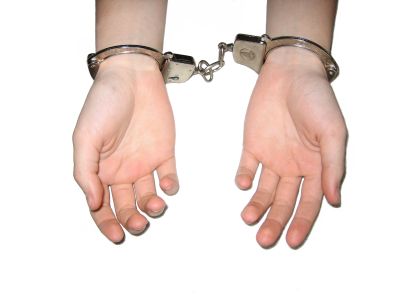Maryland legislators took action after receiving reports of abuse during the largely unregulated transport of young people to residential behavioral treatment programs. The programs themselves have been the subject of investigations that found rampant physical, psychological, and sexual abuse of the children and teens residing there.
Maryland Governor Wes Moore has signed a bill intended to prevent the trauma inflicted by the use of blindfolds, zip ties, and leather straps on young people being transported to residential behavioral treatment programs by for-profit youth transport services. The Citizens Commission on Human Rights (CCHR) National Affairs Office provided testimony in support of the bill, which passed in both chambers of the Maryland legislature last month.
Paris Hilton, who also provided testimony in support of the bill, has been active in exposing the harm from youth transport services after reportedly having suffered during a transport incident as a teen. Maryland Senate Bill 400, the Preventing Abduction in Youth Transport Act, prohibits the use of visual impairment, as with blindfolds and hoods, and mechanical restraint, as with handcuffs, belts, leather straps, and zip ties, of children during transport.

Physical restraint, including holds or other use of physical force to restrict a child’s freedom of movement, may only be used if there is a substantial likelihood of imminent serious physical harm to the child or others, and there are no less restrictive alternatives that would handle the situation. Physical restraint is expressly prohibited as punishment or for the convenience of the transport company staff.
Children being transported to residential behavioral treatment programs may not be picked up overnight between the hours of 9:00 p.m. and 6:00 a.m., under provisions of the bill.
Now signed into law, the bill also enables the state attorney general to take legal action against companies found to have violated the law and enables those harmed during transport to sue for civil damages.
The residential behavioral treatment programs for children referred to in the bill include wilderness and boot camp programs, behavioral modification schools, and other residential treatment facilities to which young people with behavioral or substance abuse problems may be sent by their parents.
Paris Hilton, who has been a strong advocate of reforms in the largely unregulated troubled teen industry, testified before the Maryland House Judiciary Committee about her experience at age 16 of being grabbed in the middle of the night by two large men who handcuffed her, shoved her in the back seat of a car, refused to answer her questions, and delivered her to a program where she says she endured further abuse.
Youth residential treatment programs have come under increasing scrutiny due to reports of rampant physical, psychological, and sexual abuse of youth in the programs.
A 2007 investigation by the Government Accountability Office (GAO) found thousands of allegations of abuse, some of which resulted in death. However, the GAO was unable to determine the scope of abuse, reporting that “GAO could not identify a more concrete number of allegations because it could not locate a single website, federal agency, or other entity that collects comprehensive nationwide data.”
More recently, a 2022 report from the National Disability Rights Network detailed extensive abuse of youth in for-profit residential treatment facilities that is “current, ongoing, and is not limited to any one corporation or geographic region.”
Yet, reports of abuse in youth residential treatment facilities and programs continue. “What is truly troubling is that, despite the mounting evidence of pervasive and systematic mistreatment, the troubled teen industry continues to perpetrate these harms, collect profits, and evade comprehensive oversight,” according to The Regulatory Review, a publication of the Penn Program on Regulation at the University of Pennsylvania.
“The Maryland bill is an important first step in protecting emotionally stressed young people by reining in the traumatic experience of being forcibly transported to youth residential treatment programs,” said Anne Goedeke, president of the CCHR National Affairs Office.
“But much more needs to be done to protect troubled children and teens from harmful practices and abuse in programs that claim to be providing treatment for their mental health issues,” she added. “We need to uphold the human rights of these young people to dignity and safety and ensure they are getting real help.”
This is an updated version of the post originally published February 19, 2025 as “CCHR Supports Legislation to Protect Troubled Youth in Maryland from Abusive Transport to For-Profit Residential Behavioral Treatment Programs.”
